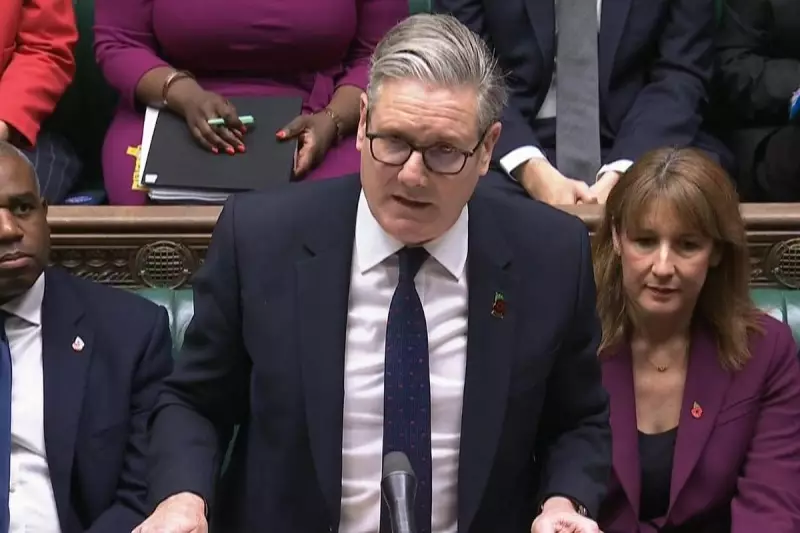
In a significant escalation of political tensions over economic management, Labour leader Sir Keir Starmer has demanded that all future government budgets be subjected to mandatory independent verification by the Office for Budget Responsibility (OBR).
The bold proposal, announced during a major speech in central London, represents a direct challenge to Conservative economic credibility and sets the stage for a key battle ground in the approaching general election campaign.
A New Standard for Fiscal Transparency
Starmer's plan would require the OBR - the UK's independent fiscal watchdog - to provide official costings and analysis for every budget, spending review, and fiscal event, regardless of which party holds power. This move aims to prevent what Labour describes as "disastrous economic experiments" like Liz Truss's mini-budget that triggered market chaos in 2022.
"Never again can a prime minister or chancellor be allowed to play fast and loose with the public finances," Starmer declared to assembled business leaders and journalists. "The British economy cannot be treated as a political playground."
Learning from Past Mistakes
The shadow chancellor, Rachel Reeves, who joined Starmer for the announcement, emphasised that their proposal builds on the existing framework established by George Osborne but closes what they see as critical loopholes.
"The current system allows governments to avoid proper scrutiny by declaring certain announcements don't constitute a formal 'fiscal event'," Reeves explained. "We would end that practice and ensure every significant financial decision faces independent examination."
Conservative Response and Political Implications
The Conservative Party immediately pushed back against the proposal, with a Treasury spokesperson describing it as "an unnecessary layer of bureaucracy that would slow down economic decision-making."
However, political analysts suggest Starmer's move represents a clever strategic play, allowing Labour to position itself as the party of fiscal responsibility while reminding voters of the Conservatives' recent economic turmoil under both Truss and Rishi Sunak.
With economic competence consistently ranking as voters' top priority, this policy announcement signals Labour's determination to win the trust of both the electorate and financial markets ahead of what promises to be a closely contested election.





